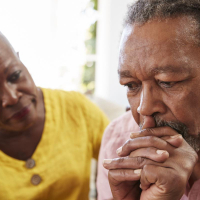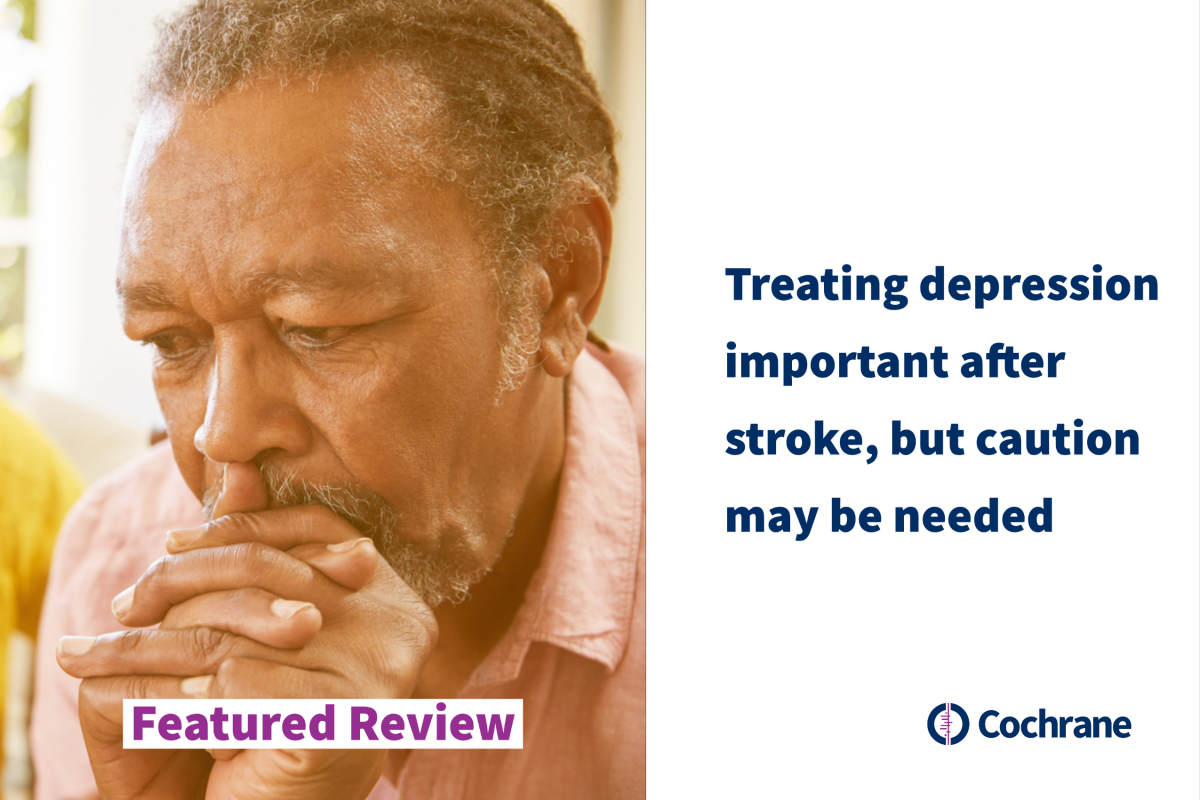
Depression is common after stroke yet often is not detected or inadequately treated.
Review authors from Australia, Canada, Taiwan and the UK asked, "Do pharmacological treatments, non‐invasive brain stimulation, psychological treatments, or combination treatments reduce the proportion of people with depression or the extent of depressive symptoms after stroke?"
The authors included trials that reported on the use of pharmacological, non‐invasive brain stimulation, psychological, and combination therapy interventions to treat depression after stroke. Mean age of people included in the trials ranged from 54 to 78 years. Studies were from Asia (30), Europe (11), North America (6), and Australia (2).
The review authors included 49 trials (56 treatments) involving 3342 people. Pharmacological treatments resulted in fewer people meeting the study criteria for depression and less than 50% reduction in depression scale scores at end of treatment. Psychological therapy reduced the number of people meeting the study criteria for depression at end of treatment. More people in the pharmacological treatment group reported central nervous system (in five trials) and gastrointestinal side effects (in four trials) than in the placebo groups. Information on side effects of other treatments was not provided.

Estimates of treatment effects were imprecise due to small numbers in most studies and recruitment of people with very different baseline characteristics. The authors rated the certainty of evidence as very low due to these and other limitations in study design.
Antidepressant drugs may benefit people with persistent depressive symptoms after stroke, but care is required in their use, as little is known about their side effects. Psychological therapy may offer a treatment option. Future research should include a broader group of people with stroke.
- Read the press release from The George Institute for Global Health
- Read the review
- Learn more about Cochrane Stroke
